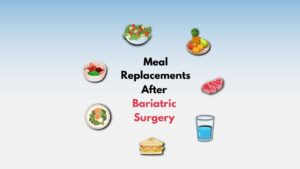
Harsha lee
Bariatric Dietician & Content Writer

Most Frequently Asked Questions About Bariatric Surgery
If you or someone you know is contemplating bariatric surgery as a potential solution for weight loss and overall health improvement, this blog is here to help. Our goal is to offer valuable insights, essential information, and answers to common questions related to bariatric surgery.
Obesity has become a widespread health issue, impacting millions of individuals worldwide and leading to various health complications, including diabetes, heart disease, and joint problems. Bariatric surgery, also known as weight loss surgery, has proven to be an effective option for those dealing with severe obesity and who have not achieved successful results with conventional weight loss methods.
Through this blog, we aim to provide you with comprehensive knowledge and support, enabling you to make informed decisions about bariatric surgery. Our hope is that this resource will guide you on your journey to better health and well-being. Remember, consultation with qualified healthcare professionals is essential to determine if bariatric surgery is the right option for your specific needs and circumstances.

Is Bariatric Surgery Dangerous?
Patients are often concerned about whether bariatric surgery is safe or not, does it has any side effects, etc.
You are absolutely right. When bariatric surgery was first developed, it carried more significant risks due to the limitations of surgical techniques and technology. However, advances in medical technology and surgical methods have considerably enhanced the safety and efficacy of bariatric surgery over the years.
Minimally invasive methods, like laparoscopic and robotic surgery, have transformed bariatric operations. These procedures entail creating tiny incisions and performing the operation with specialized devices and cameras, resulting in less stress to the body and quicker recovery times. Patients who use these procedures had fewer problems, less discomfort, shorter hospital stays, and a faster return to everyday activities.
Furthermore, surgical teams have gained vast expertise in performing bariatric operations, which has resulted in improved patient outcomes and lower risks related to the procedures.
Despite these advances, it is critical to remember that all surgical treatments include some amount of risk. The choice to have bariatric surgery should be carefully considered, including input from trained medical professionals who can analyze an individual’s particular health situation and make personalized advice.
In fact, the most recent research indicates that bariatric surgery is safer than having your gallbladder removed. Bariatric surgery has a 0.25 percent mortality rate compared to 0.7 percent for gallbladder removal.
Don’t forget that obesity is also harmful, raising the chance of life-threatening illnesses such as diabetes and hypertension and potentially shortening one’s lifetime. Bariatric Surgery is a scientific treatment for medical conditions like obesity.
Will I just regain the weight I lost after having weight loss surgery?
The myth that everyone who has bariatric surgery regains all of their lost weight is false. While some people may experience weight regain after bariatric surgery, it is important to understand that the likelihood of regaining all of the weight is relatively low, especially when patients do not return for after-care appointments, do not follow diet recommendations, or simply fall back into old habits.
Weight loss following bariatric surgery follows a curved pattern. Weight loss begins immediately after surgery and continues for 18 months to two years. Following that, a slight weight rise is to be expected, but it should then level out. This is typical, and we’re just talking about a few pounds, not a significant amount of weight (normally about 5%).
Bariatric surgery has the potential to be a life-changing and highly successful method for considerable and long-term weight loss. According to studies, the majority of patients obtain significant long-term weight loss and improvements in obesity-related health issues such as type 2 diabetes, hypertension, and sleep apnea.
Regaining all the weight can happen, but it’s rare. At Aastha Bariatrics our dietitians will help you get back on track before you regain too much of the weight you worked so hard to lose.
After having bariatric surgery, would I still have a lot of extra skin?
A person who loses a lot of weight, especially after having bariatric surgery, may have extra skin because the skin cannot shrink appropriately to the reduction in body size.
Numerous variables, including the amount of weight lost, the person’s age, heredity, skin elasticity, and how rapidly the weight reduction happened, might affect the quantity of extra skin. In general, a person is more likely to have extra skin the more weight they lose and the higher their beginning size.
After bariatric surgery, it is recommended to do massages because it helps reduce the loose skin by improving blood circulation and stimulating the lymphatic system. When blood flow is increased to an area, it brings oxygen and nutrients to the skin, which can improve its elasticity and firmness. Additionally, adopting good lifestyle practices including drinking enough water, eating a balanced diet, and exercising frequently may enhance skin elasticity and general look.
Ultimately, it’s essential to remember that excess skin is a common aspect of significant weight loss and is a testament to the positive transformation achieved through weight loss efforts. Each person’s journey is unique, and seeking advice from our bariatric dietitian can provide valuable guidance on how to manage this aspect of post-weight loss body changes.








